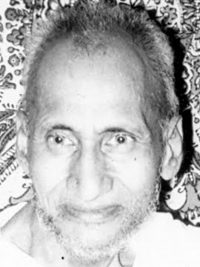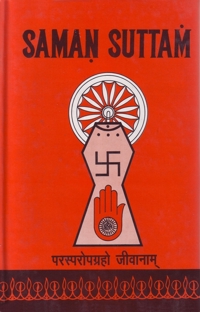PRECEPTS ON VIGILANCE
Imam ca me atthi imam ca natthi, imam ca me kiccam imam akiccam.
Tam evamevam lalappamanam, hara haranti tti kaham pamae? (160)This is with me and this is not, this is done by me and this is not; even while a man is fondling thus, he is removed away by death; how can one be careless in this state? (160)
Sitanti suvantanam, attha purisana logasarattha.
Tamha jagaramana, vidhunadha poranayam kammam. (161)He who sleeps, his many excellent things of this world are lost unknowingly. Therefore, remain awake all the while and destroy the Karmas, accumulated in the past. (161)
Jagariya dhamminam, ahamminam ca suttaya seya.
Vacchahivabhaginie, akahimsu jino jayanfie. (162)It is better that the religious-minded should awake and the wicked should sleep; this is what Jina said to Jayanti, the sister of the kings of Vatsadesa. (162)
Suttesu yavi padibuddhajivi, na visase pandie asupanne.
Ghora muhutta abalam sariram, bharanda pakkhi va care.ppamatto. (163)A wise person of sharp intelligence should be awake, even amongst those who sleep; he should not be complacent, because time is relentless and the body is weak, (So) he should ever be vigilant like the fabutous bird, Bharanda. (163)
Pamayam kammamahamsu, appamayam taha.varam.
Tabbhavadesao vavi, balam pandiyameva va. (164)Carelessness is the cause of Karma i.e. influx. Vigilance stops it. He who is invigilant is ignorant, and he who is vigilant is wise. (164)
Na kammuna kamma khaventi vala, akammuna kamma khaventi dhira.
Medhavino lobhamaya vatita, samtosino na pakarenti pavam. (165)The ignorant cannot destroy their Karmas by their actions while the wise can do it by their inaction i.e. by controlling their activities because they are free from greed and lustful passions and do not commit any sin as they remain contented. (165)
Savvao pamattassa bhayam, savvao appamattassa natthi bhayam. (166)
There is fear from every direction for an invigilant person; while there is no fear for a person who is vigilant. (166)
Na.lassena samam sukkham, na vijja saha niddaya.
Na veraggam mamattenam, narambhena dayaluya. (167)An idle person can never be happy and sleepy person can never aquire knowledge. A person with attachments cannot acquire renunciationa and he who is violent cannot acquire compassion. (167)
Jagaraha nara! niccam, jagaramanassa vaddhate buddhi.
Jo suvati na so dhanno, jo jaggati so saya dhanno. (168)Oh: human beings; always be vigilant. He who is alert gains more and more knowledge. He who is invigilant is not blessed. Ever blessed is he who is vigilant. (168)
Adane nikkheve, vosirane thanagamanasayanesu.
Savvattha appamatto, dayavaro hodu hu ahimsao. (169)A compassionate person who is always cautious while lifting and putting a thing, while urinating and excreting, and while sitting, moving and sleeping is really a follower of non-violence. (169)
13. Apramada Sutra
 Jinendra Varni
Jinendra Varni

